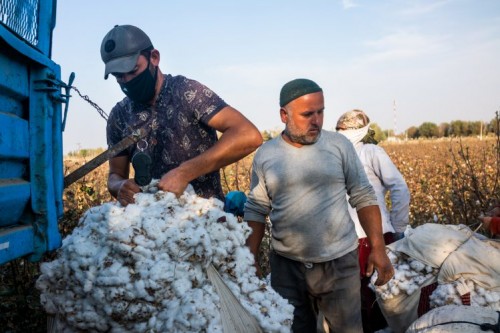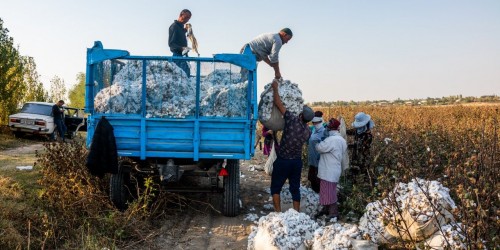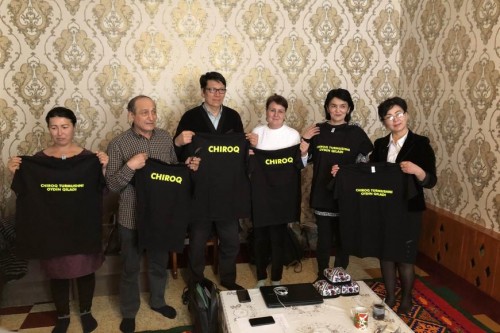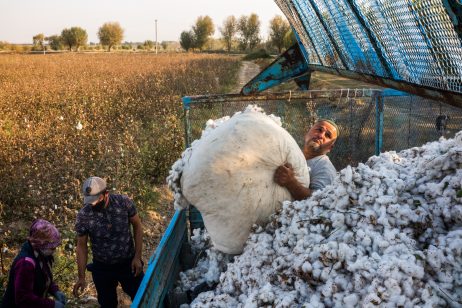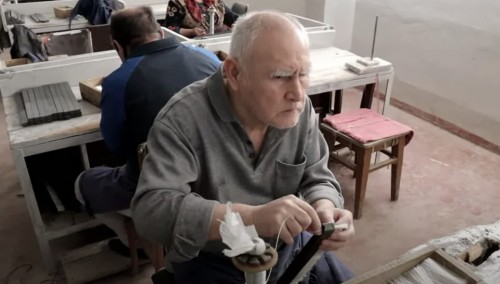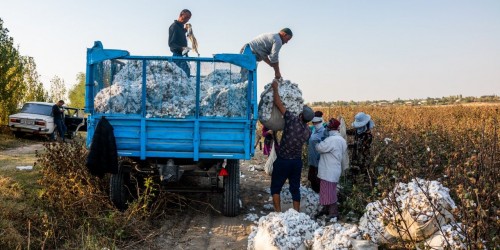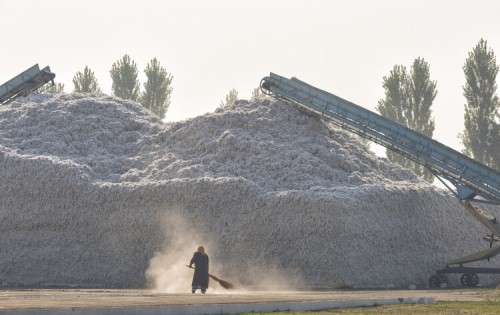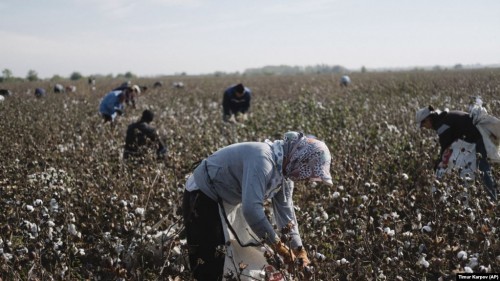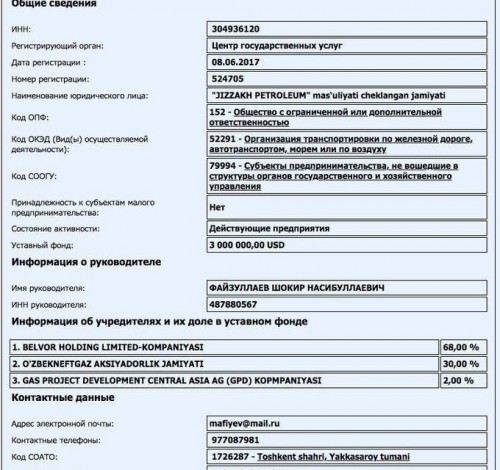Countries
Solidarity campaigns
5 June 2023
Georgia: Justice for Wolt couriers
10 May 2023
Belarus: Trade union activity is not extremism!
2 November 2019
Kazakhstan: Trade unionist Erlan Baltabay imprisoned - again!
19 November 2018
Kazakhstan: Stop repression and physical attacks on leaders of independent unions; hands off Larisa Kharkova, Erlan Baltabai and Dmitriy Senyavskiy
18 April 2018
MALOKHAT STILL NEEDS YOUR HELP
2 February 2018
FREE GASPAR MATALAEV
News
20 February, 2021 / uzbekistan
Land-grabs – the new red flag for Uzbek cotton sector
Apparel brands are said to be eyeing Uzbekistan as a potential source of cotton, particularly with Xinjiang cotton now the subject of US sanctions. A process of reform has made significant progress on forced labour issues in Uzbekistan, but now another issue has arisen: land-grabs. In this special piece for Apparel Insider, Lynn Schweisfurth, a consultant for Uzbek Forum for Human Rights, suggests the privatisation Uzbekistan’s cotton sector is seeing huge tracts of land being transferred to private operators for cotton cultivation, with farmers coerced into “voluntarily” giving up their land leases, with devastating effects on rural livelihoods.
28 January, 2021 / uzbekistan
KEY FINDINGS FROM THE 2020 COTTON HARVEST
The 2020 cotton harvest was the shortest in ten years, lasting only between 40 and 60 days, depending on the region. Cotton picking began between September 10-20, and by October 20, five of Uzbekistan’s 13 regions—Fergana, Andijan, Khorezm, Karakalpakstan and Namangan— had already reported that they had fulfilled their regional targets.
07 January, 2021 / uzbekistan
Uzbekistan: Registration Barriers for Independent Groups
Uzbek authorities are severely hindering the work of independent nongovernmental organizations (NGOs) with excessive and burdensome registration requirements, violating their right to freedom of association, Human Rights Watch said today. Uzbekistan has carried out some human rights reforms in recent years under President Shavkat Mirziyoyev. But the government has refused to allow the registration of NGOs that seek to work on sensitive issues such as human rights and forced labor. The Uzbek government should amend its legislation and allow independent groups to register.
16 December, 2020 / uzbekistan
Eliminating Forced Labor in Uzbekistan’s Cotton Sector – A Work Still in Progress
Uzbekistan has made enormous progress in eliminating forced labor, but has yet to fully eradicate it. After 10 years of monitoring and reporting on forced child and adult labor in Uzbekistan’s cotton sector, cataloging the journey toward the significant improvements that have been achieved through Uzbek President Shavkat Mirziyoyev’s ambitious reform program, there is a glimmer of hope that a historic moment may be on the horizon.
16 November, 2020 / uzbekistan
BLIND WORKERS IN TASHKENT ARE COMPLAINING OF LOW WAGES AND UNEMPLOYMENT
Blind workers at the “CHYOTKA” training and production enterprise in Tashkent which belongs to the Society of the Blind of Uzbekistan are complaining of meagre wages and unemployment. The situation in the labour market of Uzbekistan is further exacerbated by the negative consequences of the Covid-19 pandemic and related quarantine measures. Disabled people are now experiencing an even higher level of unemployment, which can lead to poverty reports a local journalist Dana Oparina at Anhor.uz.
26 October, 2020 / uzbekistan
Uzbekistan: WE NOW HAVE RIGHTS, BUT HOW TO IMPLEMENT THEM?
On October 15, the president Shavkat Mirziyoyev signed a new law “On the rights of persons with disabilities”. What measures must be taken so that it does not repeat the fate of the previous law – “On social protection of disabled people” – and really protects their rights and interests? Together with Oybek Isakov, Chairperson of the Association of Disabled People of Uzbekistan (an umbrella NGO uniting 28 public organisations of/for disabled people) we published an article in Russian at Gazeta.uz.
26 October, 2020 / uzbekistan
INTERIM FINDINGS ON UZBEKISTAN ́S COTTON HARVEST – 2020
For the tenth consecutive year, Uzbek Forum for Human Rights has independently monitored forced labor during the cotton harvest in Uzbekistan. The harvest in 2020 is taking place amidst the significant challenge of the COVID-19 pandemic. There are also important policy developments, such as the nearly complete transfer of the cotton production system to private cotton textile clusters and the abolition of state cotton quotas, as well as existing issues such as the continued lack of independent recruitment channels.
15 October, 2020 / uzbekistan
The Situation with Uzbek Cotton: Why the Pledge Remains in Place and a Path Forward
Uzbekistan is a country in transition. In recent years, the Uzbek government eliminated state-sponsored forced child labor in the cotton harvest, and then committed in 2017 to eliminate forced adult labor. The government has made significant progress toward achieving that commitment, including increasing cotton picking wages and enacting measures to abolish government production quotas for cotton.
17 September, 2020 / uzbekistan
Uzbek State Workers Say They're Still Being Forced To Pick Cotton
Reports from Uzbekistan contradict the government's claim that it has phased out its internationally-criticized policy of forcing citizens into farm fields to pick cotton every autumn. Under pressure from the Cotton Campaign, a worldwide coalition of human rights groups and businesses boycotting Uzbek cotton since 2010 over the use of child- and forced-labor in the country, officials in Tashkent say they have ended the practice.
04 September, 2020 / uzbekistan
Uzbekistan’s Largest Oil Refinery Changes Hands, Shaken by Dismissals, Theft
The Ferghana oil refinery is Uzbekistan’s largest – and most sought after. Based in the most densely populated region of Uzbekistan in the Ferghana valley, the mammoth, Soviet-built complex churns out up to 6.5 million metric tons of oil and other petroleum products a year. Dozens of oil trucks are seen daily climbing the narrow Kamchik Pass that links the valley to the rest of Uzbekistan.Radio Ozodlik, an Uzbek-language service of Radio Free Europe / Radio Liberty, reported in June that 287 staffers of the Ferghana refinery sent a group petition to Mirziyoyev’s online reception. Since Mirziyoyev’sascension to power, the reception has become an effective and often the only tool to complain about corruption among Uzbek officials.

